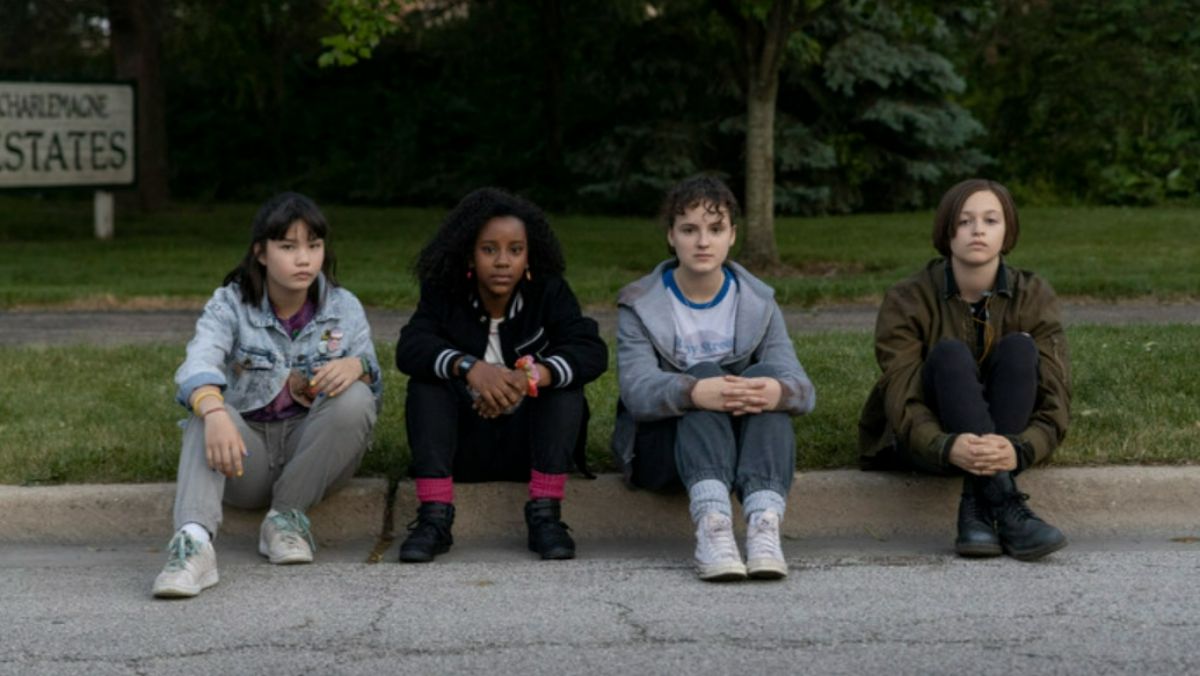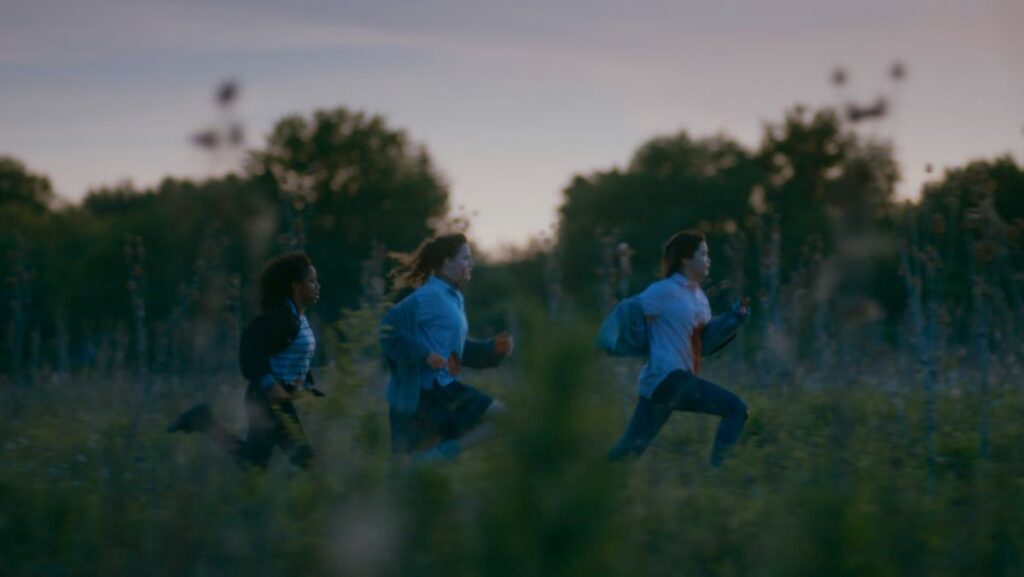Paper Girls is the latest comic to get the live-action treatment. Sometimes, it doesn’t always go well, especially if the original creators aren’t involved. If possible, it makes sense to at least have their input because, well, they are the ones who created, wrote, and did the artwork that made fans love it in the first place. Paper Girls is no exception with Brian K. Vaughan and Cliff Chiang, the dynamic duo behind this ‘80s-infused time travel saga. They serve as executive producers on the show, working alongside showrunner Christopher C. Rogers. Nerdist caught up with all three of them to talk about the challenges of translating the show to TV and more.
Nerdist: Let’s start with you, Brian. There’s always this line between satisfying comic fans and ushering in some new elements for a TV or film adaptation. As the comic writer, how did you ensure that the show would keep a lot of the elements that comic fans love while also bringing in something fresh for new fans?
Brian K. Vaughan: Yeah. I guess I’ve had the luxury of getting to work in both television and comics. So I’ve come to recognize they’re very different mediums that do different things well. I think it was giving the creators of the show the freedom [to know] that this is not a sacred text in that you have to land every word or shoot every panel like it’s a storyboard. You have to recognize what people loved about the comic. What did they love about these characters and about the tone? And try to capture that.
Also, just really giving them the freedom to go to places that Cliff and I couldn’t [in the comics]. The comic book takes place over just a couple of days in the life of these [characters]. Comic scenes might last three to five pages and it’s more like poetry—you just have to keep distilling everything down—whereas on television, you have time to just luxuriate in these moments between characters and really explore.
![[hold 7/20] PAPER GIRLS Creators on Bringing the Comic to Life and Season 2 Plans_1](https://cirrkus.com/wp-content/uploads/2022/07/1658750408_158_PAPER-GIRLS-Creators-on-Bringing-the-Comic-to-Life-and.jpg)
That’s true. A show is the perfect chance to fill in the gaps of those “in between” spaces that you get in a comic. Cliff, what was your vision and input in terms of the show’s aesthetics?
Cliff Chiang: In a lot of ways comics can be really intimidating in terms of visuals because it’s an almost unlimited kind of budget. You can have huge, crazy moments, but also focus on making things feel authentic and believable. But I was also really flattered to be asked by the show to put together some notes and some visual ideas and to explain the inspiration for a lot of the visuals. And they took that and assimilated it and really took it to heart. And you can see all that stuff throughout, from the locations, to the wardrobe, to the props. They really honored the source material. You can see that in the stories as well. And to see that is incredibly flattering and really works. I love the way the show looks.
Christopher C. Rogers: I will say, the panels were so detailed and thoughtful and we weren’t going to beat that. There were so many times it was like, “look he’s got the Walkman, he’s got the headline.” It was so specific and thoughtful that often we could only do worse than what was there already. So we were very fortunate to start from a very strong place on the visuals.
The panels are indeed brilliant. Paper Girls is the type of story with a concrete and satisfying ending where things come full circle. So Chris, I am really curious if you have a specific number of seasons in mind?
CR: I wouldn’t say there’s a concrete number of seasons. I would say that I believe in using all your good stuff to get right there. Cause if you hold anything back, the audience is going to feel like you’re treading water. They’re smart… Go as far as you can go each season, usually farther than you thought you would. And so we certainly did it in season one. We have a really exciting direction for season two that I think envisions that same end goal… I absolutely think Paper Girls has a really thoughtful arc in the source material that we would like to emulate. But at the same time, we want to surprise [viewers] and expand what’s there.

I get that. Did you feel any specific pressures while crafting the show?
CR: Honestly, I didn’t want to blow it because we are all fans of the original. So you feel a huge responsibility to do that. But I mean, as a showrunner often you’re just facilitating a larger conversation. We brought eight really smart, diverse people into the room to pick apart these small moments that have been suggested in the comic and just say, “Okay, what if we blew this out? What does the rest of this conversation look like? What if we could luxuriate in this scene for, you know, five full minutes, what else might happen?”
And so I thought that was the opportunity to jump off from the beautiful starting place Brian and Cliff gave us… Then whenever you add actors, directors, the craftsmen that come to make a TV show, new opportunities present themselves. And I think you’re wise to say yes to them… As a result, I think we were richer for it.

